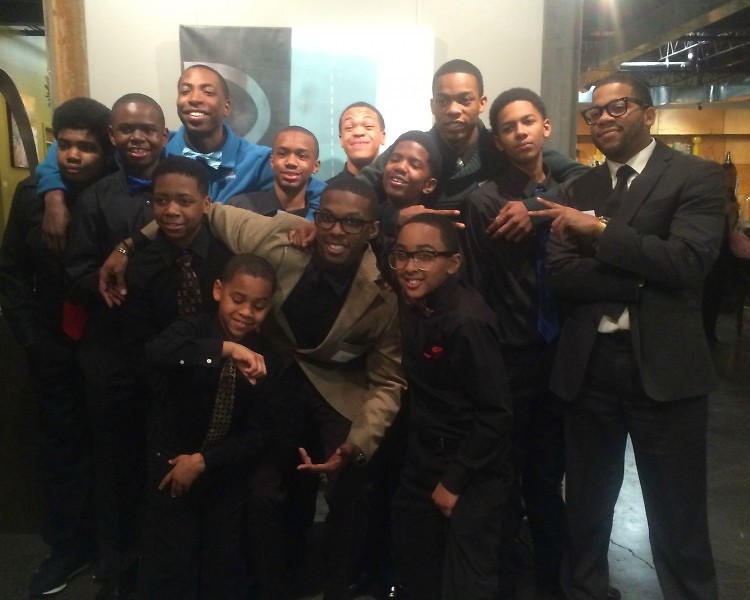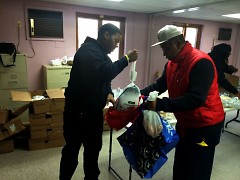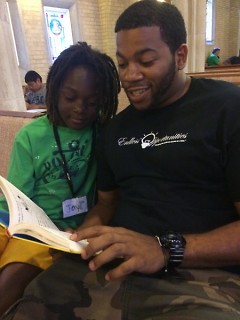Written by Alvin Hills IV, Co-founder fo Endless Opportunities
Often times I hear of board position openings that are organized to address many different agendas in the Black community with years worth of meetings and minimal community engagement. Or maybe there’s a march being held today for a shooting victim that has been tragically gunned down by law enforcement for “walking while black” however my philosophy is simple: Organize and Act!
As a younger community leader I often find myself around individuals or boards that insist on meeting constantly to discuss the various issues plaguing the Black community, yet too much time continues to pass on without action. I agree with Jerry Bishop's statement 110%: “It will take the energy of individuals, not the collective efforts of systems.” On too many occasions we have board members sitting at the table for face value or even the photo op at the end to represent their organization without the slightest bit of guilt for not taking action today.
If you’re bold enough to sit at the table and discuss Black issues, you should be bold enough to go find a Black student to mentor in the neighborhoods. Simple as that! We can no longer allow those who just want to talk about the issues to be at the table. I believe if board directors are serious about creating true impact, they should require board members to present their own independent plan on addressing the issue.
Let me break it down: if you want to sit on the board to help create more youth programs for students of color, you should already be a part of something tangible to show your diligence in correcting the issue. You should already be on LinkedIn or Facebook with content displaying your community action as a solution to creating more employment opportunities for youth.
My strongest belief of all is that the Black community should not depend on government or law enforcement to clean up our communities. Are you kidding me? Every family has a son, cousin or brother who they know is involved in street activities, however they turn a blind eye to their actions. It’s ridiculous! We have families content with allowing their sons to be around gang activities because that’s his cousin or parents simply think their son is a saint and it’s just his friends who are the troublemakers. No, it’s your son too, just like the saying “birds of a feather flock together.” That type of thinking must end now.
From this day forth we have to hold ourselves accountable for our families and our neighbors. We must teach non-violent conflict resolution in all of our homes, period. Our communities should not need an increase in police patrol regularly: this tactic puts our sons at the hands of police discretion daily. I love the group of moms in Chicago called “Moms on Patrol.” These women walk their own neighborhoods and provide conflict resolution before police are notified. This is the framework for change that doesn’t cost a dime to implement.
We must as a community create our own systems for our people. From healthcare to neighborhood watch, all such efforts should be implemented and operated by people of the community. Government can only do so much for citizens in our world today, but the unification of resources among a community creates more sustainable systems. As the saying goes, “nobody wants to invest in hope-” and this can be seen often in direct correlation to prevention programs.
The majority of systemic programs are offered to youth after they get in trouble, which is a whole different conversation to dive into, but we need prevention programs that are not exclusively tied to grant dollars. Why can’t they be tied to grant dollars? The evidence is in many schools or community based nonprofits who have to discontinue valuable services because the grant dollars ran out. It’s time that we pool our resources collaboratively as a community to fund our own initiatives that cannot be wiped out at the discretion of a donor. The Black community has $1.3 trillion dollars in spending power that every other community benefits from and thrives on because we do not create the basic infrastructure to be self-sufficient.
As I conclude I couldn’t be more optimistic about the direction my community is heading here in Grand Rapids. We are acting on the issues at hand and organizing the next generations to follow. We have individuals from 8-80 years old whose eyes are starting to see the light of how we move forward. I’m aware that this type of change will not happen overnight, but I guarantee you that the wheels are already turning to ensure our future generations are left with a better hand to play than their elders. I challenge all community members to engage and be present in community efforts to create social transformation here in Grand Rapids, Michigan.
The Rapidian, a program of the 501(c)3 nonprofit Community Media Center, relies on the community’s support to help cover the cost of training reporters and publishing content.
We need your help.
If each of our readers and content creators who values this community platform help support its creation and maintenance, The Rapidian can continue to educate and facilitate a conversation around issues for years to come.
Please support The Rapidian and make a contribution today.



